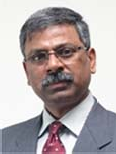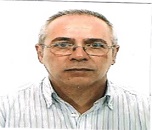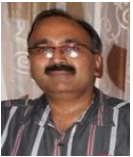Theme: Make our planet a cleaner place to live
Recycling 2018
On behalf of Recycling Conferences, we extend a warm welcome to the distinguished Nobel laureates, speakers, delegates related to recycling research, Recycling Industries, Recycling Associations and Policy Makers, from around the world to Vancouver for 9th International Conference on Recycling which is going to be held during December 05-06, 2018 in Vancouver, Canada The theme of the conference is “Make our planet a cleaner place to live’’. The conference mainly focuses on the importance of Recycling, Recycling basics and Waste Management Techniques Recycling Conferences aims to bring together leading Recycling Industries, Recycling researchers, Policy Makers, and Academicians, including Nobel Laureates to exchange and share their experiences and research results about all aspects of Recycling and its allied areas
Details of Recycling 2018 in Canada:
Every year, globally Conference Series LLC Ltd organizes series of International Recycling conferences that includes Plastic Waste Recycling Conferences, Waste Recycling Conferences, Waste Management Conferences, Recycling Events and Recycling Exhibitions.
|
Conference Name |
Place |
Date |
|---|---|---|
|
Vancouver, British Columbia, Canada |
December 5-6, 2018 |
Track1. Waste Management Techniques
Squander administration systems are valuable to limit or diminish the loss in condition and these will accommodating to keep the earth clean. Generally utilized waste administration procedures are Ocean Dumping, Sanitary Landfill, Incineration, Recycling, and Composting and so forth squander administration strategies includes Mechanical and organic waste treatment, Mechanical arranging of squanders, Resource recuperation from squander, Methods of Waste Disposal, Recovery and Recycling. Every one of these procedures are valuable to limit the loss in the earth however these are likewise have a few focal points and hindrances. Reusing is the best waste administration method among all these and the benefit of reusing is critical to giving a livable situation to what's to come.
Track 2. E-Waste Recycling and Management:
Electronic waste or e-squander is a term used to portray any electronic gadget that is obsolete, old, broken, gave, disposed of, or toward the finish of its valuable life. This incorporates PDAs, PCs, portable workstations, PDAs, screens, TVs, printers, scanners, and some other electrical gadget. One of the real difficulties is reusing the printed circuit sheets from the electronic squanders. The circuit sheets contain such valuable metals as gold, silver, platinum, and so forth and such base metals as copper, press, aluminum, and so forth.
Track 3. Solid Waste Management:
Strong waste administration, the gathering, treating, and discarding strong material that is disposed of in light of the fact that it has filled its need or is not any more helpful. Uncalled for transfer of city strong waste can make unsanitary conditions, and these conditions thus can prompt contamination of the earth and to episodes of vector-borne malady that is, sicknesses spread by rodents and creepy crawlies. The errands of strong waste administration display complex specialized difficulties. They likewise represent a wide assortment of regulatory, financial, and social issues that must be overseen and tackled. Strong waste administration is one among the fundamental thing administrations gave by civil experts in the nation to keep urban focuses clean.
Track 4. Waste Water Recycling:
Water reusing will be reusing treated wastewater for useful purposes, for example, rural and scene water system, mechanical procedures, can flushing, and renewing a ground water bowl (alluded to as ground water energize). Water reusing offers asset and budgetary funds. Wastewater treatment can be custom-made to meet the water quality necessities of an arranged reuse. Reused water for scene water system requires less treatment than reused water for drinking water. Reused water can fulfill most water requests, as long as it is sufficiently treated to guarantee water quality suitable for the utilization.
Track 5. Plastic Recycling:
Plastic reusing is the way toward recuperating plastic material from scrap or waste plastic and reprocessing that material into helpful items, some of the time totally unique in shape from their unique state. Plastic isn't regularly biodegradable, reusing it is a piece of worldwide endeavors to decrease plastic in the waste stream, particularly the roughly eight million metric huge amounts of plastic waste that enter the world's sea consistently. Plastic reusing incorporates dissolving down soda containers and afterward giving them a role as plastic seats and tables. Contrasted and lucrative reusing of metal, and like the low estimation of glass, plastic, polymers reusing is regularly all the more difficult on account of low thickness and low esteem. There are additionally various specialized obstacles to overcome amid plastic waste reusing.
Track 6. Paper Recycling:
Paper is one of the materials that can be effortlessly reused. Reused paper will be paper that was produced using paper and paper items that has just been utilized and recouped. Individuals need to take as much time as is needed and spare the paper items with the goal that they can be reused. Paper reusing starts with us. We as a whole need to demonstrate our enthusiasm for reusing to make it effective. The Paper reusing movement can begin at school, school, home, office, neighborhood group and even at drop off focuses. We as a whole need to comprehend what items can be reused before gazing the reusing procedure and how to legitimately set them up for the reusing
Track 7. Industrial Waste Recycling:
Waste yields for mechanical materials like solvents, paints, oils and bonds are difficult to oversee. Either burdened with or displayed to chemicals dangerous to individuals and the earth, Industrial waste materials must be disposed of truly and safely, however like an extensive variety of waste, sensible waste plans are needy upon money related issues. There is negligible financial inspiration to use diverse responses for discarded mechanical waste materials despite the run of the mill straight exchange, which is habitually exceptionally over the top regardless. The most ideal exchange and control of these things and their packaging is exceedingly overseen by the U.S. Characteristic Protection Agency (EPA) and can't regularly be gotten or arranged by city waste structures. Associations, makers and free ventures are in like manner responsible for the private organization of this waste.
Track 8. Chemical Waste Recovery:
Compound waste is a waste that is delivered utilizing dangerous chemicals (generally made by generous assembling plants). Engineered waste may be classed as hazardous waste. A creation dangerous waste is a solid, liquid, or vaporous material that introductions either a "Risky Characteristic" or is especially "recorded" by name as a hazardous waste. There are four characteristics substance wastes may must be considered as perilous. These are Ignitability, Corrosively, Reactivity, and Toxicity. This kind of dangerous waste must be requested as to its identity, constituents, and risks with the objective that it may be safely dealt with and overseen. Substance squander is a far reaching term and incorporates many sorts of materials. Direction the Material Safety Data Sheet (MSDS), Product Data Sheet or Label for an once-over of constituents. These sources should state whether this invention squander is a waste that requirements unprecedented exchange.
Track 9. Food Waste Recycling:
Sustenance adversity or food squander is sustenance that is discarded or lost uneaten. In any case, correct definitions are antagonistic, routinely portrayed on a situational preface (like the case all the more all around with implications of waste. Proficient bodies, including overall affiliations, state governments and secretariats may use their own specific definitions. Sustenance squander is an unfamiliar imperativeness source that generally ends up rotting in landfills, thusly releasing nursery gasses into the air. Sustenance misuse fuses normal wastes made in motels, restaurants, flagons, cafeterias, strip malls and current stops as residual food, vegetable can't, stale cooked and uncooked support, meat, teabags, napkins, removed tea powder, deplete things et cetera. It is difficult to treat or reuse food misuse since it contains irregular measures of sodium salt and sogginess, and is mixed with other waste in the midst of aggregation.
Track 10. Agriculture Waste Recycling:
Agrarian waste is characterized as 'squander from premises utilized for farming inside the importance of the Agriculture Act 1947, the Agriculture (Scotland) Act 1948 or the Agriculture Act (Northern Ireland) 1949'. Agrarian practice covers all exercises that can happen on a homestead or croft and incorporates exercises, for example, slurry spreading, concoction and waste stockpiling, silage making and waste pesticide transfer. The waste stream may incorporate a scope of things and materials that are not particular to horticulture, for example, bundling waste, tires, batteries, scrap hardware and oil. What's more there will be squander that is more particular to the area, for example, pesticide holders, silage wrap and so on.
Track 11. Rubber Recycling:
Elastic is created from characteristic or engineered sources. Characteristic versatile is gotten from the smooth white fluid called latex, found in many plants; designed rubbers are made from unsaturated hydrocarbons. There are a couple of made rubbers in progress. These are made similarly to plastics, by an engineered strategy known as polymerization. They consolidate neoprene, Buna rubbers, and butyl flexible. Produced rubbers have as a rule been made with specific properties for ace applications. The designed rubbers commonly used for tire make are styrene-butadiene flexible and butadiene versatile (the two people from the Buna family). Butyl versatile, since it is gas-impermeable, is normally used for interior tubes. Tire reusing, or Rubber reusing, is the route toward reusing waste tires that are never again sensible for use on vehicles due to wear or unsalvageable mischief.
Track 12. Construction Waste Management:
Development squander" implies Waste produced by development exercises, for example, scrap, harmed or ruined materials, transitory and nonessential development materials, and helps that are excluded in the completed venture, bundling materials, and waste created by the workforce. Development squander administration incorporates: to diminish the age of development squander; to amplify reuse and reusing and to decrease the admission of blended development squander at landfills. Administration of development squander is costly and frequently introduces unintended results. In any case, sound judgment proposes that inability to lessen, reuse and reuse societal squanders is unsustainable. Some waste created during the time spent development can be dispensed with. For instance, solid secluded metal shape frameworks for use in solid development might be chosen on the premise of being promptly demountable and reusable on different tasks, in this way dispensing with wood squander related with formwork created of plywood and dimensional timber.
Track 13. Waste Management Engineering:
Squander administration engineers compose and oversee squander transfer, gathering, and reusing offices. They may likewise be in charge of waste treatment and road cleaning operations. A few posts join squander administration and reusing capacities, while others split them into particular occupations.
Errands regularly incorporate directing waste administration plans, for example, at landfill locales; overseeing the vehicle of waste so air, land or water sources are not sullied; helping with the advancement, advancement and execution of new waste transfer plans; guaranteeing consistence with ebb and flow enactment in the transportation, taking care of and transfer of waste; gathering insights and assembling reports, frequently to strict due dates; managing enquiries and protests from individuals from people in general; examining and following up cases of unlawful dumping; counseling with inhabitants, group gatherings, councilors, lodging affiliations and brokers' relationship about waste administration issues, distinguishing their necessities and giving fitting arrangements; creating research ventures; and adding to the exercises of national gatherings worried about waste transfer.
Reusing implies the remanufacturing of recuperated materials, instead of re-utilize, where the recouped item is basically re-utilized for comparative purposes, e.g. drink bottles.
Reusing of waste includes the partition at wellspring of recyclable materials from the general waste stream and the re-utilization of these materials.
Track 14. Recycling Solid Waste
Strong squanders can be characterized as any disposed of or relinquished materials. Strong squanders can be strong, fluid, and semi-strong or containerized vaporous material. Strong waste incorporates squander tires, refuse, scrap metal, latex paints, packed gas barrels and so forth. Squander administration is the only way toward treating strong squanders and offers assortment of answers for reusing things that don't have a place with junk. Squander administration is accumulation, transportation, and transfer of rubbish, sewage and other waste items. Rubbish can be utilized as an important asset. Squander administration discards the items and substances that you have use in a sheltered and productive way. The greatest favorable position of the reusing strong waste is that it can diminish the volume of strong waste to 20 to 30 for each penny of the first volume, diminishes the space they take up and lessen the weight on landfills.
Track 15. Effect of 3Rs on climate change:
Impact of 3Rs in Climate Change Reduce, reuse and reuse to diminish environmental change. Environmental change is any real change in measures of atmosphere, which incorporate temperature, precipitation, precipitation, snow and wind. These progressions keep going for a considerable length of time or more. Many elements are causing environmental change, including human exercises through consuming petroleum derivatives, chopping down trees, planting trees and building advancements. Most researchers now concur that environmental change is occurring.
We can ensure our characteristic assets by following 3Rs
1. Diminish the measure of items use
2. Reuse the items as opposed to discarding
3. Reuse squander items
Track 16. Hazardous Waste Recycling :
Perilous waste Management, the accumulation, treatment, and transfer of waste material that, when shamefully took care of, can make considerable damage human wellbeing and security or to nature. Hazardous misuses can show up as solids, liquids, smudges, or contained gasses, and they are made essentially by creation age, manufacturing, and other current activities. They may realize hurt in the midst of lacking amassing, transportation, treatment, or exchange operations. Uncalled for dangerous waste accumulating or exchange a great part of the time contaminates surface and groundwater supplies. People living in homes worked close old and betrayed squander exchange areas may be in a particularly exposed position. With a ultimate objective to cure existing issues and to keep future harm from risky misuses, governments eagerly control the demonstration of hazardous waste organization.
Track 17. Organic Waste Recycling :
The principle types of natural squanders are family unit sustenance squander, rural waste, human and creature squander. Natural materials begin from plants and creatures. Natural waste originates from Fruits and vegetables, Meat, poultry, ocean bottom, pastry kitchen things and fixings, Paper items, Ice cream, yogurt, curds, Plants, cut blossoms, gardening soil and so on. Natural squanders are generally dumped in landfills; it experiences anaerobic deterioration and produces methane. Natural squanders are used in horticulture fundamentally to improve the dirt physical and compound properties and for supplement hotspots for developing products. The significant wellspring of natural waste utilized as a part of agribusiness is creature compost, however little measures of nourishment handling and other mechanical squanders are additionally connected to arrive.
Track 18. Entrepreneur Investment Meet : Recycling 2018
Recycling 2018 empowers an unmistakable stage for changing over potential thoughts into incredible business. The present gathering will unite a wide cooperation originated from Entrepreneurs, Proposers, Investors, universal budgetary associations, business affiliations, the scholarly community and experts in the field of reusing, squander administration and its related sciences. This venture meet encourages the most improved and pragmatic business for drawing in individuals in to helpful exchanges, assessment and execution of promising business.
Recycling -2018 is mainly based on the theme “Make Our Planet a cleaner place to live’’ We warmly welcome all the participants of world’s leading Scientists, Researchers and Scholars. We provide a platform for young researchers and students to present their research through oral presentations through which they can develop a foundation for collaboration among young researchers.
Conference Series LLC Ltd aims at setting a platform for all the budding scientists and researchers to present their real-time work and share their views and aspects related to the theme of the conference. The organizing committee is gearing up for an exciting and informative conference program including plenary lectures, symposia, workshops on a variety of topics, poster presentations and various programs for participants from all over the world.
Conference Series LLC Ltd organizes a conference series of 1000+ Global Events inclusive of 300+ Conferences, 500+ Upcoming and Previous Symposiums and Workshops in USA, Europe & Asia with support from 1000 more scientific societies and publishes 700+ Open access journals which contain over 30000 eminent personalities, reputed scientists as editorial board members.
For more details please visit: http://recycling.conferenceseries.com/america
Recycling -2018 is mainly based on the theme “Make our planet a cleaner place to live” We warmly welcome all the participants of world’s leading Scientists, Researchers and Scholars. We provide a platform for young researchers and students to present their research through oral presentations through which they can develop a foundation for collaboration among young researchers.
It provides a great platform to cover recent breakthroughs in waste management techniques which is mainly differentiated as Metallurgical, Chemical, Agriculture and Forestry, Textile, Power and Energy, and Construction Industry. Furthermore, the waste recycling is further sub-categorized into Iron and steel, Automotive and Battery Recycling, Food Wastes, Electronics, Glass, Liquids Oils & Chemicals, Minerals Collection, Waste Paper, Scrap Plastic, Tire & Rubber, Wood Recycling.
The Legislature set an ambitious goal of 75 percent recycling, composting or source reduction of solid waste by 2020 calling for the state and the Department of Resources Recycling and Recovery (Call Recycle) to take a statewide approach to decreasing reliance on landfills. This represents the next evolutionary phase of waste management. These goals cannot be met without motivation and action at multiple levels within both the private and public sectors. This mindset is also reflected in ongoing reforms within the Beverage Container Recycling Program to safeguard the recycling fund, combat fraud and maximize resource use.
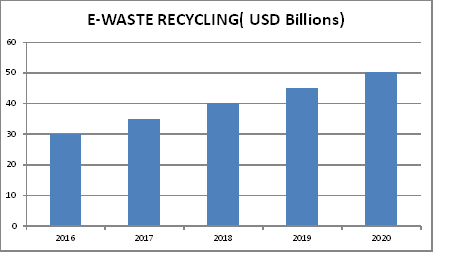
E Waste Recycling:
We all love our cell phones, tablets, and flat screen TVs. Many of us also love to replace those gadgets every couple of years with the latest and greatest new models. Around the world, 30 to 50 million tons of electronic devices are tossed away every year. The potential revenue from the recycling of e-waste is 2.15 billion Euros and projected to grow significantly. By 2020, the market for recycling of e-waste will grow to 3.67 billion Euros. There is an absolutely phenomenal opportunity in this sector and a big challenge in society to think about how we are going to deal with the increased demand for electronic products and e-waste.
Plastic Recycling:
The plastic recycling industry tends to speed up the rate of recycling as a part of its commitment to provide solutions to the solid waste. In the overall recycling industry, more plastics are expected to get recycled than any other recycling material. Initially, recycled PET was majorly used in the carpet fiber industry in the U.S., and the early development of this business was focused in eastern U.S., where certain states adopted the first bottle deposit laws which led to the collection of post-consumer bottles. In emerging economies such as Asia Pacific, growing demand for post-consumer bottles has prevented the buildup of inventories which has reduced the pressure for the collection industry to develop western markets. The global plastic waste management market is projected to be valued at around USD 26,573.3 million by 2020, growing at a CAGR of 3.02% from 2015 to 2020. The strict laws pertaining to waste management and disposal and increasing awareness of the adverse impact of accumulating plastic waste have led the public sector such as municipalities and the private sector which involves companies offering environmental services such as collection and recycling of plastic waste.
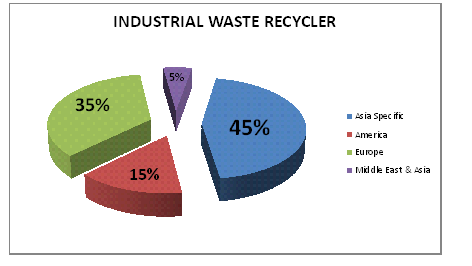
Industrial waste recyclers:
Modern waste is characterized as waste that is created by a mechanical or assembling action. The sorts of modern waste created incorporates earth and rock, stone work and solid, piece metals, oil, junk, solvents, chemicals, weed grass and trees, wood and scrap amble, coal fiery remains, heater slags, and comparable waste. In a large portion of the industrialized economies, the customary way to deal with waste has been to discard it as inexpensively as could be allowed; paying little worry on what happens once the waste leaves the maker's office.
Middle East & Africa, Americas - Global Trends and Forecasts to 2020” defines and segments the global industrial waste management market with an analysis and forecast of the revenue.
The industrial waste management market will develop from an expected $932.4 billion in 2015 to $1,520.0 billion by 2019 with a CAGR of 10.23% from 2015 to 2019. The worldwide modern waste administration market is fragmented on the premise of their administrations which incorporate gathering, reusing, cremation, and landfill. The market is further fragmented on the premise of areas, for example, Asia-Pacific, Europe, Middle East and Africa, and Americas.
Summary of the Conference:
Economic and environmental reasons are the base for the ever increasing needs of recycling in our society. Industries and governments are joining their efforts and learning to work together towards better, faster and more efficient ways to recycle for a better future. As people committed to increase the sustainability of our world by recycling resources, the delegates will share our accomplishments towards “Make Our Planet a cleaner place to live” To create the awareness of recycling, we are conducting the 9th International Conference on Recycling during Dec 05-06, 2018 with the theme “Make Our Planet a cleaner place to live”
There are many reasons why it's important to recycle and compost as much as possible. It conserves raw materials and making new products out of recycled materials reduces the need to consume precious resources. So recycling helps protect raw materials and protect natural habitats for the future. As world is facing a shortage of raw materials, increased garbage in environment ,increased pollution Recycling - 2018 during Dec 5-6, 2018 is going to be held at Vancouver, Canada with an aim to grow awareness and interests in the field of Recycling and its allied areas.
Why to Attend??
The conference will provide a forum for exchange of recent research results among researchers from all across the world focused on learning and sharing knowledge upon use of Recycling and for discussion of future challenges in implementation and application of latest technologies and advances in this field.
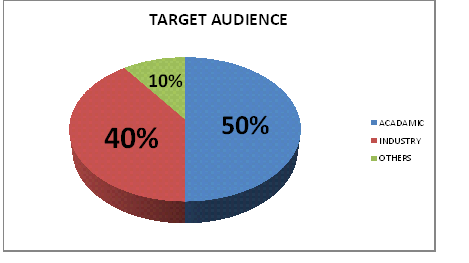
Association of Canada Recyclers Major Recycling and Waste Management Associations in Canada:
• Canadian Association of Recycling Industries
• Canadian Institute for Business and the Environment
• Canadian Plastics Industry Association
• Citizens' Network on Waste Management
• City of Toronto Solid Waste Management Services
• Ontario Automotive Recyclers Association
• Ontario Environment Industry Association
• Ontario Waste Management Association (OWMA)
• Recycling Council of British Columbia (RCBC)
• Recycling Council of Alberta (RCA)
• Waddington Resource Management
Top Universities in Canada:
• The University of British Columbia
• McGill University
• University of Toronto
• York University
• University of Alberta
• Queen's University
• Ryerson University
• University of Ottawa
• Concordia University
Conference Highlights
- Waste Management Techniques
- E-Waste Recycling and Management
- Solid Waste Management
- Waste Water Recycling
- Plastic Recycling
- Paper Recycling
- Industrial Waste Recycling
- Chemical Waste Recovery
- Food Waste Recycling
- Agriculture Waste Recycling
- Rubber Recycling
- Construction Waste Management
- Waste Management Engineering
- Recycling Solid Waste
- Effect of 3Rs on climate change
- Hazardous Waste Recycling
- Organic Waste Recycling
- Entrepreneur Investment Meet: Recycling-2018
- Renewable Energy
- Landfills
- Environmental Chemistry and Pollution Control
- Renewable energy sources and Climate change mitigation
- Sustainable energy Policies
- Environmental engineering
- Metal Recycling
- Petrochemical and Oil Recycling
- Thermal waste Recovery
To share your views and research, please click here to register for the Conference.
To Collaborate Scientific Professionals around the World
| Conference Date | December 5-6, 2018 | ||
| Sponsors & Exhibitors |
|
||
| Speaker Opportunity Closed | Day 1 | Day 2 | |
| Poster Opportunity Closed | Click Here to View | ||
Useful Links
Special Issues
All accepted abstracts will be published in respective Our International Journals.
Abstracts will be provided with Digital Object Identifier by











